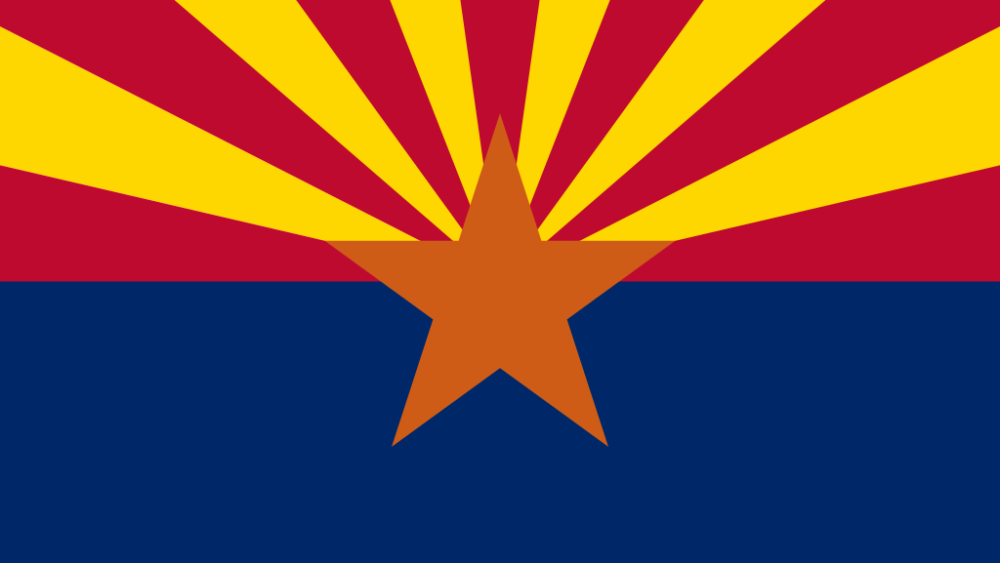November 6, 2024 •
Arizona Voters Decide Competing Electoral System Measures

Arizona State Flag
On November 5, voters in Arizona rejected a ballot measure to implement ranked choice voting in general elections and defeated a competing measure to require partisan primaries.
The ranked choice voting measure, Proposition 140, requires primaries in which candidates, regardless of partisan affiliation, appear on a single ballot.
The measure allows a certain number to advance to the general election, such as top-two or top-four primaries.
In contrast, the partisan primary measure, Proposition 133, is contradictory because a primary cannot be both partisan and include all candidates running in the same primary regardless of party.
While Proposition 133 doesn’t state that ranked-choice voting can’t be used in general elections, Proposition 140 conditions ranked-choice voting on a primary system change.
Proposition 133 would have added the existing system of partisan primaries to the Arizona Constitution, where voters select candidates to represent political parties in the general election.
As of 9:00 a.m. November 6, with more than 58% of the precincts reporting, Proposition 133 failed 58% to 42%.
State and Federal Communications, Inc. provides research and consulting services for government relations professionals on lobbying laws, procurement lobbying laws, political contribution laws in the United States and Canada. Learn more by visiting stateandfed.com.


